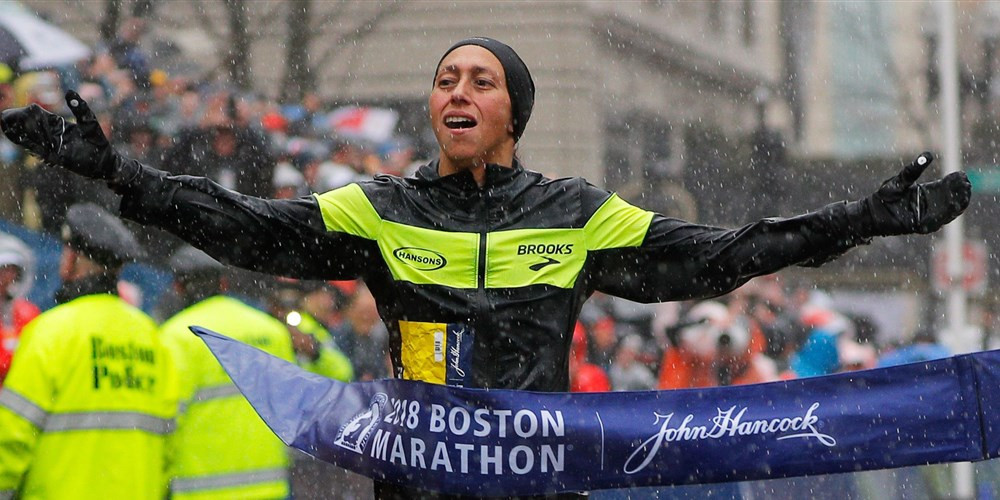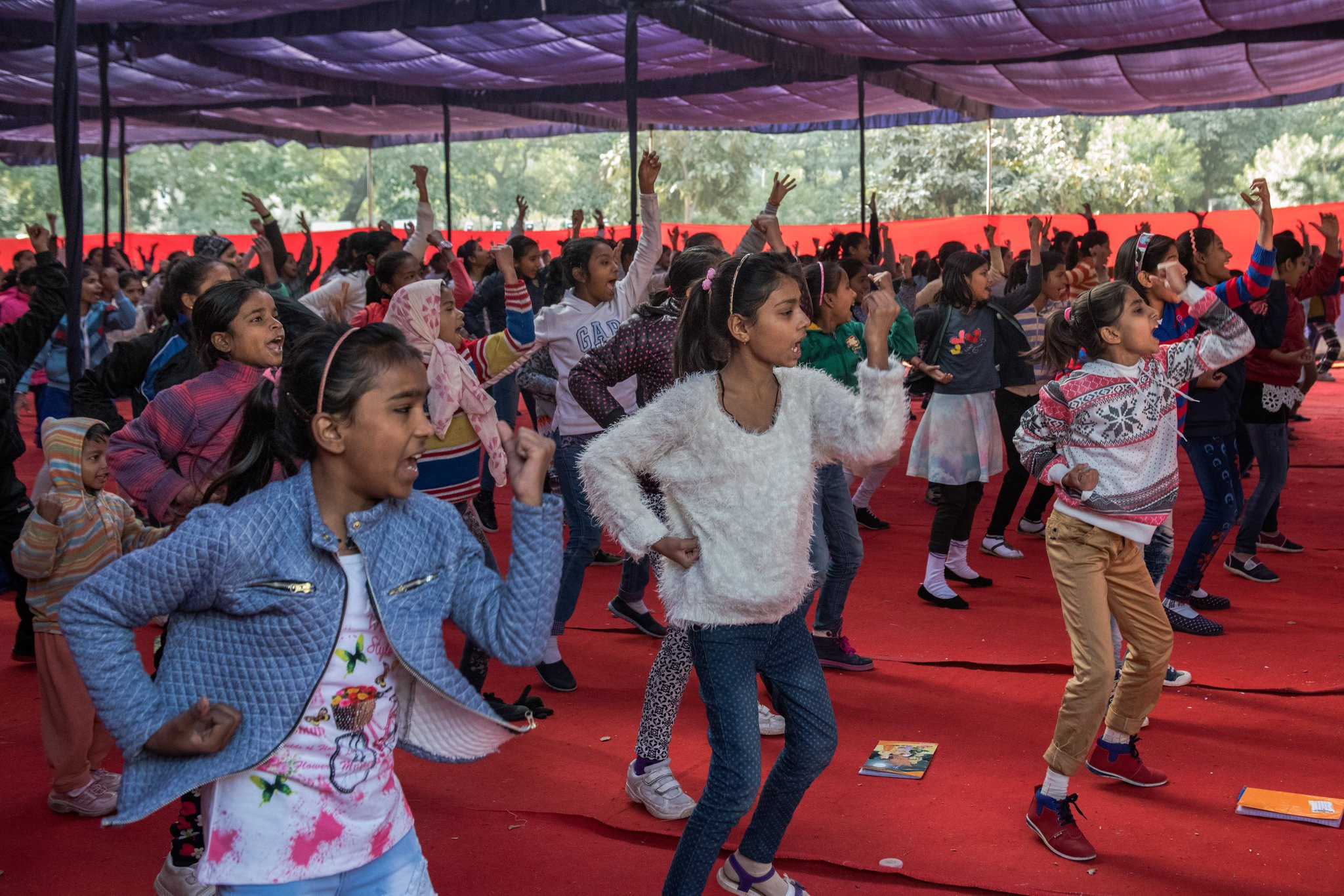Trending 4-17-18
FIRST AMERICAN WOMAN TO WIN BOSTON MARATHON IN 33 YEARS

PHOTO: Desiree Linden of the U.S. crosses the finish line to win the women's division of the 122nd Boston Marathon in Boston, Massachusetts on April 16, 2018. Brian Snyder / Reuters
For the first time in 33 years, an American woman, Desiree Linden, won the Boston Marathon. Linden made her historic achievement in less than favorable conditions. She withstood cold temperatures, rain, and wind to take home the victory, in an unofficial time of 2 hours, 39 minutes, 54 seconds—more than four minutes ahead of her closest competitor. She also received $150,000 in prize money.
Linden is a 34-year-old, two-time Olympian who was the runner-up in the 2011 Boston Marathon. "I don't have the right words," she said post-race. "I'm thrilled. It's supposed to be hard." She also showed amazing sportsmanship early on in the 26.2-mile course, leaving the lead pack after fellow American contender and current New York City Marathon champion Shalane Flanagan stopped to use a portable toilet, according to CNN. "Honestly, at mile 2, 3, 4, I didn't feel like I was gonna even make it to the finish line," Linden said. "I told her [Flanagan] in the race, I said, 'You know, if there's anything I can do to help you out, let me know because I might just drop out.' When you work together, you never know what's going to happen. Helping her helped me and kind of got my legs back from there."
Linden wasn't the only American woman to win today. Tatyana McFadden took home her fifth title in the race's wheelchair division. “I am so happy and so overwhelmed,” McFadden said. “The past month, I’ve been putting in a lot of hard work, lots of two-a-days. I just kept
WOMEN AND GIRLS BY THE HUNDREDS FIGHT BACK
 Women and girls by the hundreds are taking free self-defense courses taught by the New Delhi police, as the country combats sexual assault. “Men treat us like we aren’t human” and Indian girls learn to fight back. New York Times article reports 10-day course hosted free by New Dehli police for the past eight years in city’s public schools and universities in an effort to combat crimes of attacks on women and young girls.
Women and girls by the hundreds are taking free self-defense courses taught by the New Delhi police, as the country combats sexual assault. “Men treat us like we aren’t human” and Indian girls learn to fight back. New York Times article reports 10-day course hosted free by New Dehli police for the past eight years in city’s public schools and universities in an effort to combat crimes of attacks on women and young girls.
Classes taught by female officers includes summer and winter camps for women as well as a course called “gender sensitization for boys” too. The course is taught by lawyers to teach men to help women in trouble and be more respectful to them in public. It’s an effort to make men feel more responsible towards women and girls. Courses are booked solid for six months according to Police Constable Renu, who like many Indians goes by one name. A recent kidnapping, gang rape, and murder of an 8-year-old girl brought national outrage and an influx of women and girls as fear grows from many similar stories in the news. A newcomer to New Delhi is advised to exercise and laden with grim warnings of possible attacks.
Source: New York Times, Maria Abi-Habib
ENTREPRENEURSHIP OF MINORITY WOMEN RAPIDLY RISING
 The number of businesses started by minority women is increasing, even outpacing the number of new businesses opened by men, according to a new study. The number of businesses owned by Hispanic women has grown fastest, rising by 87 percent in the last five years, followed by another large increase in female business owners who are African-American.
The number of businesses started by minority women is increasing, even outpacing the number of new businesses opened by men, according to a new study. The number of businesses owned by Hispanic women has grown fastest, rising by 87 percent in the last five years, followed by another large increase in female business owners who are African-American.
The research conducted by the payroll and human resources company Paychex found that between the 2007 and 2012 census, the total number of women-owned firms increased at a faster rate than male-owned operations. The number of businesses owned by African-American women grew by nearly 69 percent, while firms owned by Asian-American women increased by more than 44 percent.
Cities like New York and Chicago have the greatest average of minority female-owned businesses across the most populated cities in the U.S., while Delaware has the largest number of female minority-owned businesses per capita, followed by Maryland and Mississippi. New York City officials pledged in 2017 to award minority- and women-owned business enterprises 30 percent of all city projects by 2021 and to award $16 billion in city funding by 2025.
The study found that although the ratio of minority women in Delaware at 20.7 percent is lower than the national average of 23 percent of the total population, the state ranked first overall for the number of minority women-owned businesses per capita, 20 per 100,000 of residents. Maryland followed closely with 17.6 female minority-owned businesses per every 100,000 residents, Mississippi had 11.1 and Washington followed with 5.1.






